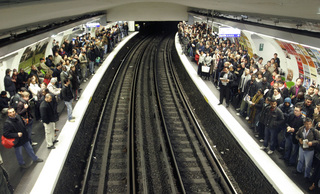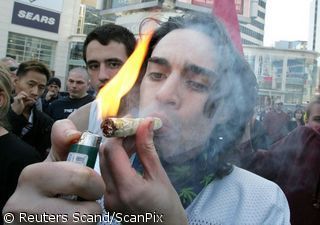Once stateless, these young Crimean Tatars have now returned to Oktyabrskoe in southern Ukraine, where they are attending a national school
Published:
7 October 2004 y., Thursday
UN High Commissioner for Refugees Ruud Lubbers on Wednesday reminded states that there are several million stateless people in the world today and introduced Ukraine and Sri Lanka as positive examples of countries that had found resolutions for large groups of stateless people.
Lubbers was speaking during a special panel discussion taking place at the annual meeting in Geneva of the UNHCR's governing Executive Committee. The panel was part of a year–long effort to commemorate the 50th anniversary of a UN convention dedicated to improving the lot of stateless people, and drawing more attention to the huge, but little–known problem of statelessness.
"We have it everywhere," said Lubbers, citing a recent UNHCR survey of statelessness which revealed that it is a problem all over the world. However, there is far less information available about how many people are affected and the precise nature of their predicament, than is the case with refugees. Many countries simply have no idea how many stateless people there are on their territory. In other cases, there is little information available because the groups concerned are a highly sensitive issue in the domestic landscape.
A stateless person is someone who is not considered a national by any state – including the one where he or she is living – and thus is not protected by any national legal system. Stateless people cannot vote. Even worse, they may be unable to marry legally, or register the birth of their children, thus perpetuating the cycle of statelessness. They are often deprived of the right to do things that other people living in the same country take completely for granted: go to school, get a job, open a bank account or travel abroad.
Šaltinis:
UNHCR
Copying, publishing, announcing any information from the News.lt portal without written permission of News.lt editorial office is prohibited.
The most popular articles
 75 years after Moscow first opened its underground train system, Muscovites can ride a restored vintage train.
more »
75 years after Moscow first opened its underground train system, Muscovites can ride a restored vintage train.
more »
 A glacier melt threatens to cause massive flooding and destroy a centuries old monastic fortress in the remote country of Bhutan.
more »
A glacier melt threatens to cause massive flooding and destroy a centuries old monastic fortress in the remote country of Bhutan.
more »
 What do countries as geographically diverse as Saudi Arabia, Uganda and Jamaica have in common? All of them criminalised homosexuality.
more »
What do countries as geographically diverse as Saudi Arabia, Uganda and Jamaica have in common? All of them criminalised homosexuality.
more »
 Human rights is a key issue for the European Parliament and MEPs Monday took a first look at what the European Union did last year, when they discussed the EU annual report on human rights in the world.
more »
Human rights is a key issue for the European Parliament and MEPs Monday took a first look at what the European Union did last year, when they discussed the EU annual report on human rights in the world.
more »
 Researchers found high levels of mecury in a Japenese dolphin-hunting town, but say the mecury has no ill effects.
more »
Researchers found high levels of mecury in a Japenese dolphin-hunting town, but say the mecury has no ill effects.
more »
 Crowds of Mexicans marched peacefully through the capital city on Saturday demanding the legalisation of marijuana.
more »
Crowds of Mexicans marched peacefully through the capital city on Saturday demanding the legalisation of marijuana.
more »
 Prisoners are reported to have dramatic improvements in behaviour after pets are introduced in a new scheme.
more »
Prisoners are reported to have dramatic improvements in behaviour after pets are introduced in a new scheme.
more »
 Israeli Ultra-Orthodox MPs are lining up against activists proposing a total ban on furs, saying traditional fur hats are an important part of their religious tradition.
more »
Israeli Ultra-Orthodox MPs are lining up against activists proposing a total ban on furs, saying traditional fur hats are an important part of their religious tradition.
more »
 EU Member States should organise social protection, including at least 14 weeks' maternity allowance, for self-employed women and self-employed men's wives or life partners, in accordance with national laws, said the Women's Rights Committee on Tuesday.
more »
EU Member States should organise social protection, including at least 14 weeks' maternity allowance, for self-employed women and self-employed men's wives or life partners, in accordance with national laws, said the Women's Rights Committee on Tuesday.
more »
 How are the European Parliament, the European Commission and other parts of the European Union supposed to interest people and explain their work?
more »
How are the European Parliament, the European Commission and other parts of the European Union supposed to interest people and explain their work?
more »